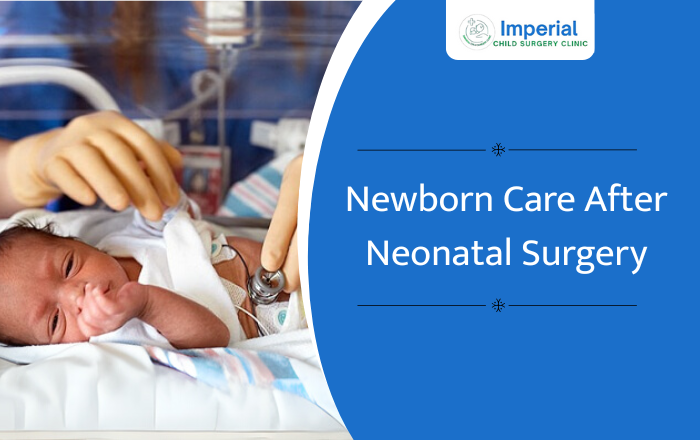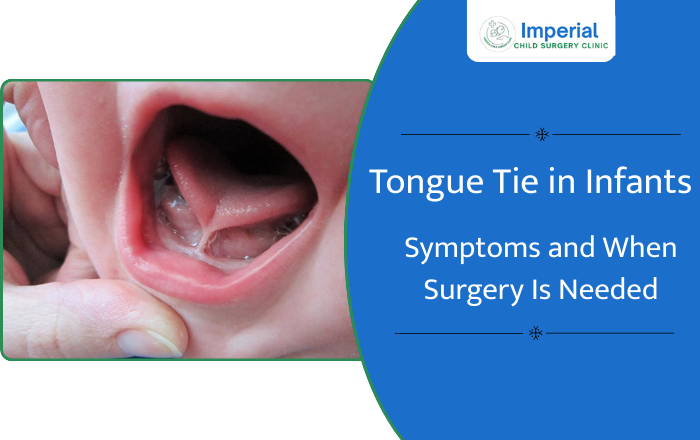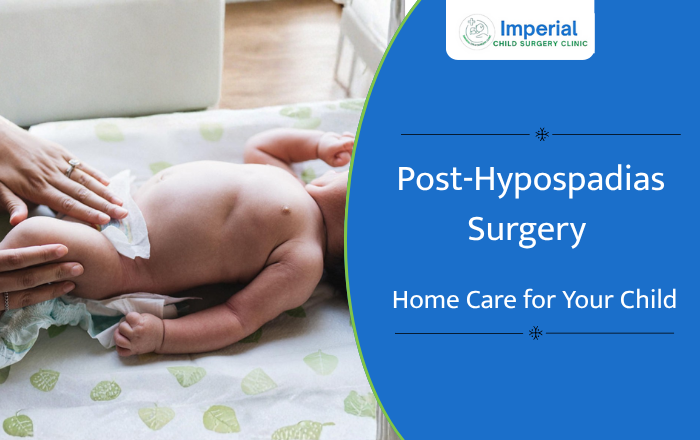Having a newborn is already a lot. When your baby needs surgery right after birth, it takes everything to a whole new level. You’re probably running on very little sleep, a lot of emotion, and endless questions.
You’re not alone in feeling that way.
This blog is here to walk you through the basics of newborn care after neonatal surgery—what to expect, what to watch for, and how to care for your baby at home once the hospital stay is over.
You don’t need to be perfect. You just need to be prepared.
What Is Neonatal Surgery and Why Is It Done?
Neonatal surgery means surgery done on a newborn, often within the first few days or weeks of life. Sometimes it’s planned ahead of time, sometimes it’s an emergency right after birth.
These surgeries are usually done to fix something the baby was born with—like a blockage in the intestines or a problem with the lungs, stomach, or heart.
Common Types of Neonatal Surgeries:
- Repair of hernias (like diaphragmatic or inguinal)
- Surgery for intestinal atresia (a blockage or missing part of the intestine)
- Fixing esophageal atresia or tracheoesophageal fistula (issues with the food pipe)
- Surgery for Hirschsprung’s disease (a bowel issue that affects digestion)
Each condition and surgery comes with its own recovery process, but the care principles at home often overlap.
Right After Surgery: What Happens
After surgery, your baby is taken to the NICU or recovery unit. This is where doctors and nurses monitor your baby closely.
Here’s what typically happens:
- Your baby may be on a ventilator for a short time
- IV lines will provide fluids and medications
- Pain is managed carefully with medicines
- Feeding may be paused, or started slowly through a tube
Don’t worry if your baby looks fragile or hooked up to a lot of equipment. It’s temporary and necessary for healing.
When Can Your Baby Come Home?
Before discharge, doctors make sure:
- Your baby is breathing well without help
- There’s no sign of infection
- They can feed and digest properly
- You’re comfortable handling wound care and feeding
Once those boxes are ticked, it’s time to bring your little one home.
Caring for Your Newborn at Home After Surgery
Now you’re back home and on your own. This part can feel intimidating—but you’ve got this. Let’s break down the most important things.
Feeding After Surgery
Depending on the type of surgery, feeding may be a little tricky at first. If your baby had surgery on the stomach or intestines, they may need smaller, more frequent feeds. Some babies take time to return to breastfeeding or bottle feeding.
Watch for signs of fullness, spit-up, or discomfort. If your baby is vomiting or not gaining weight, call your pediatrician.
Cleaning and Protecting the Surgical Site
Here’s what you need to know:
- Keep the area clean and dry
- Use only the cleaning method your doctor recommends (usually clean water or mild antiseptic)
- Avoid full baths until the incision is fully healed
- Don’t apply creams or powders unless instructed
Look for signs of healing: closed edges, reduced redness, and no oozing.
Pain and Discomfort
Newborns can’t tell you they’re in pain—but they show it:
- High-pitched or constant crying
- Restlessness
- Not sleeping or feeding well
You’ll likely be sent home with medication instructions. Stick to the doses, and never give anything without asking your doctor.
Also, snuggling, skin-to-skin contact, and gentle rocking really help.
Signs That Something Might Be Wrong
It’s important to trust your gut. Call your doctor if you notice:
- Fever above 100.4°F (38°C)
- Redness, swelling, or pus at the surgical site
- Baby refuses to feed or seems unusually sleepy
- Vomiting or bloated belly
- Breathing changes or fast heart rate
You’re not being paranoid. You’re being a parent. If you’re unsure, always check.
Handling and Sleeping Tips
Your baby may have stitches or bandages. Be gentle but confident when handling them.
Here’s what helps:
- Always support their head and surgical area
- Stick to back-sleeping (as always for newborns)
- Avoid tight clothing over the wound
Don’t worry—you won’t hurt them by holding or loving them.
FAQs: Quick Answers to Common Questions
1. How long does it take a newborn to heal after surgery?
It depends on the surgery, but most babies recover within 2 to 6 weeks. You’ll see progress gradually.
2. Can I bathe my baby normally after surgery?
Avoid full baths until the doctor says it’s okay. Stick to sponge baths and keep the wound dry.
3. Is breastfeeding safe after abdominal surgery?
Yes, but feeds might need to be smaller and slower. Watch for signs of digestion issues.
Caring for your newborn after surgery is not easy. But you’re doing it—and that counts for everything. Take it one day at a time. Don’t expect perfection. And trust yourself more than you think you should.
Talk to Dr. Aamer Iqbal Today About Your Baby’s Surgery
If you’re in Pune and need a trusted pediatric surgeon to guide you through your baby’s recovery—or just want to ask a few questions—you can reach out to:
Dr. Aamer Iqbal
Neonatal Surgeon in Pune
Imperial Child Surgery Clinic
He’s worked with hundreds of families and babies recovering from surgery, and can help you make sense of the next steps.





